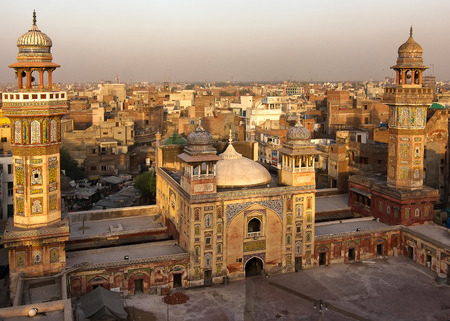Government information
"Belt and Road", Chinese Businessmen Started to Run to Pakistan To Do Business
Zhang Yang, an entrepreneur from Chongqing, is looking for online forums for like-minded entrepreneurs to join him in exploring business opportunities in Pakistan, a supposedly "insecure" country.
Zhang Yang is 48 years old. With the Chinese government promising to invest $57 billion in infrastructure projects in Pakistan under its “Belt and Road” Initiative, a growing number of Chinese businessmen, like Zhang Yang, have sensed an opportunity beyond the Himalayas.
With the "Belt and Road" project being built by Chinese workers broke ground, thousands of Chinese are now heading to Pakistan to do business, some open restaurants, some open language schools, and some Chinese are wondering what Chinese goods they can sell to the country of 208 million population, or what they can put to produce in Pakistan, so that they can take the the cost advantage to sell to the worldwide.
Zhang Yang is mainly engaged in real estate, electrical appliances and daily necessities industries. "Many industries in China are already saturated," he says. He plans to set up several factories in Pakistan or import some Chinese goods to sell here.
"Pakistan's development is lags behind China's, so it also has more opportunities compared to China". But the Chinese businessmen also face some dangers, that also cause a deep headache for Pakistani security officials.
In June, two Chinese nationals were killed by Islamic State terrorists in Balochistan province, illustrating the risks faced by the Chinese in Pakistan. Chinese nationals are extremely easy targets for Islamic extremists in Pakistan.
In addition, according to Pakistani officials, Beijing has been worried that Islamic extremist forces in Pakistan will merge with East Turkistan and others like Xinjiang independence forces.
Although the Pakistani government does not disclose relevant immigration figures, according to Pakistan's foreign ministry, about 71,000 Chinese nationals entered Pakistan in 2016. A senior Pakistani immigration official said, Pakistan's immigration department issued 27,596 extended visa permits to Chinese nationals last year, an increase of 41% from 2015, which indicating that more and more Chinese are choosing to extend their stay in Pakistan.
It is obviously not easy for Pakistan to ensure the safety of all Chinese in its territory.
Beijing's massive investment in infrastructure in Pakistan has significantly boosted the domestic economy and further strengthened the economic ties between the two countries, making Pakistan an important part of China's "Belt and Road" grand Plan.
The first phase of the “China-Pakistan Economic Corridor”, the Pakistani part of the Belt and Road Initiative, focuses on infrastructure projects; The second part is to establish special economic zones to integrate Chinese companies into the local economy to help Pakistan develop industries ranging from mining to agriculture.
China has become the largest source of foreign direct investment in Pakistan so far, with direct investment exceeding $1 US billion in both 2016 and 2017. At a time when Chinese companies are aggressively pushing into Pakistan, Western companies are staying away from the country due to security and corruption concerns.
"Pakistan is in great need of foreign investment and we cannot afford to miss out on foreign investment because of a few idiots with guns". Miftah Ismail, special adviser to Pakistani Prime Minister Abbasi, pointed out: "We will not let them harass the Chinese".


